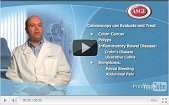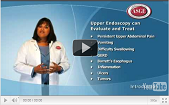Fast Access Screening Colonoscopy
Fast Access Screening Colonoscopy represents Dr. Salzberg's effort to offer screening colonoscopy to the broadest population possible, recognizing that doing away with the pre-colonoscopy doctor's visit may make the difference between a busy person getting his screening colonoscopy, or putting it off another year - perhaps until it is too late.
It is for those healthy persons who may not have the time for a pre colonoscopy office consultation. Patients who are confident that they qualify for open access, should download and complete the forms listed making certain to check the box marked "Fast Access" on the first page of that form. Contacting our office and faxing the forms to 678-957-0047 will allow Dr. Salzberg to review these and determine if Fast Access Screening Colonoscopy is appropriate for you.
Your colonoscopy will be scheduled over the phone and you will have your options for the bowel prep explained to you. Instructions may also be downloaded for both the prep and the colonoscopy as well.
We Suggest All Patients Watch the Video Below

Colonscopy:
What Patients Can Expect
Patient Forms
Preparation Instructions
The document below will help you get ready for your colonoscopy.
Fast Access Screening Colonoscopy Availabilty
Open Access (Fast Access Screening Colonoscopy) is available to patients exclusively for a routine screening colonoscopy or surveillance ("follow-up") colonoscopy for the purpose of searching for and removing polyps and for the early detection of actual colon cancer before it causes any symptoms. It is not intended for individuals who are experiencing gastroenterological symptoms that have not previously been addressed. Importantly, it is not intended for patients who require special provisions in advance. Those for whom "the Fast Access" cannot be offered are those:
- receiving anticoagulants , e.g. Coumadin, or antiplatelet drugs, such as Plavix if a stent has been inserted in a coronary artery within the past year, or if stents have been inserted to treat peripheral vascular disease
- who have had a stroke or TIA
- who have an implanted ICD(defibrillator) or pacemaker
- have significant breathing problems or heart problems
- have reduced kidney function
- are obese
- have had problems with sedation in the past
- have had unsatisfactory results or problems with the bowel prep in the past or who have a major constipation issue
- have a high level of anxiety, either in general, or in regard to the procedure in particular, or who have a significant psychiatric history.
Links to Patient Education
 Catch a Killer: Get Screened for Colon Cancer |
 Colonscopy: What Patient Can Expect |
 Upper Endoscopy |

